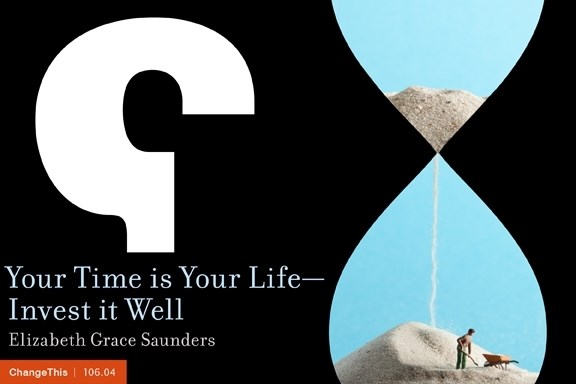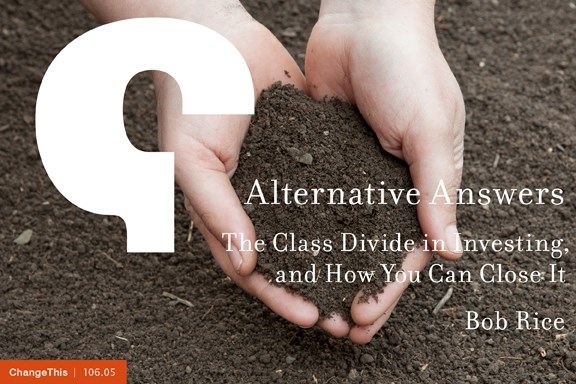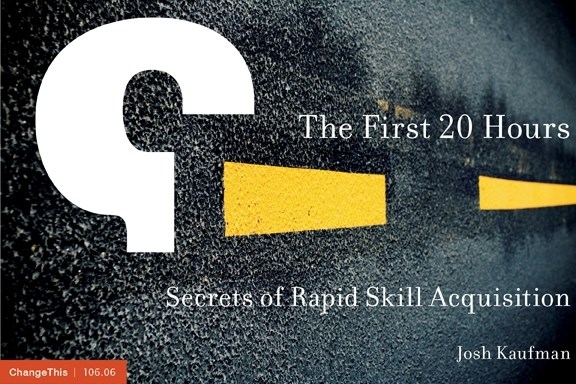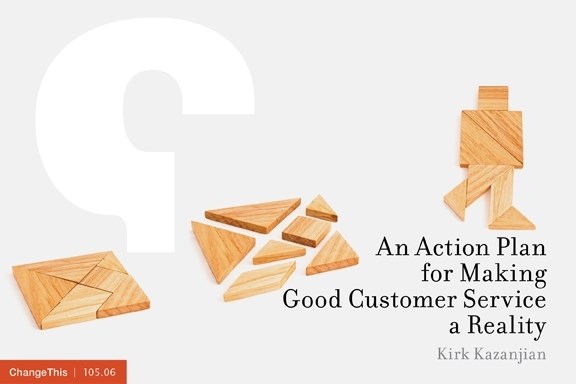ChangeThis RSS
"Now is a time of revolution—or perhaps more precisely evolution—in the world of personal productivity. Time management no longer offers sufficient support for people overwhelmed with the onslaught of responsibility and opportunity in today's 24/7 world. The next step: Time Investment.
Ironically, the people with the most time and autonomy can end up the most miserable because their relative freedom makes them hold onto the false notion that they can do everything. But the truth is that even if you have copious amounts of time and resources, you still need to make choices. Failing to do so will lead to an unsatisfying lack of depth and closure in your life."
Continue reading
"Harvard's biggest single financial bet is on timber, not stocks. Yale has just 6% of its endowment in US equities; instead, it's long "absolute return," "private equity," and real assets. Each is up more than100% over the past decade.
In the meantime, typical investors have, at best, treaded water. And that's no anomaly. In 7 of the 11 decades since 1900, the classic 60/40, stock/bond portfolio has returned an average real return of a whopping... 1%. Yes, those other four decades were big winners; but then those gains were walloped by the kinds of big crashes that are only becoming more frequent.
Fact is, a class system has developed among investors over the past few decades. Elite money managers have used a proprietary set of tools to ride economic cycles up, but also to avoid big losses during downturns. Meanwhile, the rest of us all thought that "investing" was synonymous with simply buying stocks and bonds, with maybe a bit of real estate tossed in. [...]
Fortunately, times have changed—even if most people still don't know it.
Institutional-strength, non-traditional options are now available to almost all investors, and the mass affluent have an especially rich menu from which to choose. [...] Let's take a look at a quick look at how some of these "alternative" strategies both make money, and avoid losing it."
Continue reading
"I'm willing to wager there's something in the back of your mind you've always wanted to learn how to do. [...] I'm also willing to wager you feel you don't have enough time to learn this particular skill. You're overworked already, and time is tight. You have work to do, family to take care of, friends to hang out with, and too many responsibilities as it is. By the time your work and family obligations are satisfied, you're tired: after you eat dinner and watch a little TV, it's time to call it a day.
So much to do, and so little time.
[...] I have good news for you: picking up new skills is way easier than you think. Believe it or not, you can pick up the fundamentals of any new skill in about 20 hours."
Continue reading
"In business and in life, the game is usually won by those who can consistently execute a well-thought-out strategy. In other words, winners stick with it—they practice adherence. Adherence is the ability to consistently execute. Not coincidentally, the word 'adherence' appears to have originated in the 1500s from the French word 'adherer,' which means 'to stick to.' Adherence is the critical link between strategy (knowing) and results (doing). Therefore, it is the solution to the knowing-doing gap. Winning requires adherence because successful execution of your plan is not a one-time event but rather steady progress over an extended period of time. [...]
Achieving adherence is simple but not necessarily easy. It takes skill and creativity to continually nurture focus, competence, and passion with your team. This is why we call it the art of adherence."
Continue reading
"Any company can market and promote that they are experts at cuddling customers, but very few ever get the formula for execution right.
A big reason is that most organizations never bother to put all of the essential building blocks in place to create a customer-centric culture. They like to talk the talk, but don't walk the walk.
They also forget that before your employees will ever take good care of your customers, you have to first take great care of them."
Continue reading










